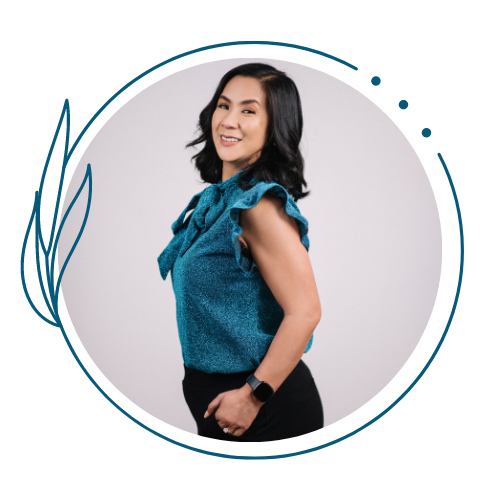Imposter Syndrome or Cultural Humility? Why You Doubt Your Excellence
Let me ask you something: Do you ever feel like you’re secretly fooling everyone at work? Like at any moment, someone might tap your shoulder, smile awkwardly, and say, “Hey, we made a mistake—you don't belong here”?
Yeah, me too. More often than I'd like to admit.
For years, I labeled that nagging doubt “Imposter Syndrome.” You’ve probably heard the phrase tossed around—a fancy term meaning we secretly feel unqualified, despite all evidence pointing to our competence.
But lately, I've been thinking there's more to the story. Especially for people who, like me, grew up in cultures where humility wasn't just valued—it was required.
Let Me Tell You About My Tita Mila
My Tita Mila was a nurse. Not just any nurse, but one of those exceptional souls who could comfort anyone—a sick child, a terrified patient, an overwhelmed new nurse—with just a glance.
She was brilliant, deeply experienced, and widely respected. But whenever someone complimented her skills, she'd laugh nervously and wave it off.
"Oh, I'm just doing my job," she'd say. "Anyone can do it."
But here's the thing: Not everyone could do what she did. So why couldn’t she just accept the praise?
Because in Filipino culture (and many others), openly owning your achievements feels like bragging. And bragging? That’s practically a mortal sin.
When Humility Becomes a Trap
Cultural humility can be beautiful. It grounds us, keeps our egos in check, and makes us approachable. But it can also quietly sabotage us.
Think of humility as a cozy sweater—warm and comforting. Now imagine wearing that sweater in the blazing heat of summer. Suddenly, what once felt safe now feels suffocating.
That’s exactly how cultural humility can twist into something darker. We get so good at minimizing ourselves that we start believing our own downplaying. We shrink ourselves in rooms where we should be standing tall.
We don't just pretend we're not amazing—we start to believe it.
And that's when cultural humility and imposter syndrome become deeply tangled.
Why You Really Doubt Your Excellence
Here’s the uncomfortable truth: your self-doubt isn’t just coming from your brain’s fear center—it’s reinforced by generations of subtle lessons that taught you excellence should always be quiet.
But excellence shouldn't always whisper. Sometimes, it needs to speak clearly, even loudly. Because your brilliance is only helpful if others can see it too.
I remember the first time I had to present at a professional conference. Standing in front of a room full of people, my palms sweating, I was terrified they’d realize I didn’t belong.
But then something shifted. A colleague approached afterward, beaming, saying my talk changed her perspective. Yet I almost responded with, “Oh, it was nothing.”
Almost.
Instead, I smiled, breathed in courage, and replied, “Thank you. I'm glad it resonated.”
A small moment, sure, but a powerful shift.
How to Own Your Excellence (Without Losing Your Roots)
If this resonates with you—if you've ever mistaken your cultural humility for genuine inadequacy—try this:
1. Accept praise graciously.
Next time someone compliments you, don't dismiss it. Just smile and say, “Thank you.” It's uncomfortable at first, but it gets easier.
2. Separate humility from self-doubt.
Humility means recognizing that your excellence is a gift worth sharing. It doesn't mean pretending that excellence doesn't exist.
3. Practice visibility.
Raise your hand at meetings. Volunteer for bigger opportunities. Let yourself be seen—not for ego, but because your ideas and contributions matter deeply.
Stepping into Your Light
You’re not an imposter, and you don't need to abandon humility to recognize your brilliance. You’re simply someone who's been wearing humility like armor, forgetting that beneath it is someone who deserves recognition, respect, and visibility.
Your excellence is real. Your voice matters. And when you finally stop doubting your worth, everyone benefits—including you.
So next time someone acknowledges your greatness, don't hide behind the cultural instinct to deflect.
Instead, step forward, smile, and say:
“Yes. Thank you. I’m proud of what I've accomplished.”
Because guess what?
You absolutely should be.
Sign up for my free newsletter, usually sent once a month (and sometimes more often when inspiration strikes!). These are letters from my heart, filled with insights from my personal journey and client work, honest talk about life, and practical tools for managing self-doubt, tapping into inner wisdom, and embracing personal growth.
If you're seeking greater empowerment, satisfaction, and self-confidence, my newsletter will offer a steady source of inspiration, encouragement, and support







